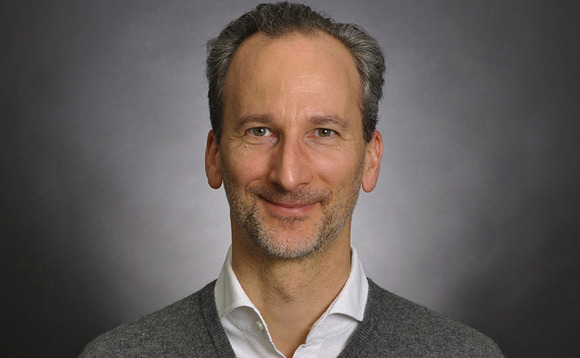
SHS to launch new fund, make 3-4 deals in 2021

Following the sale of its stake in Single Use Support, managing partner Sascha Alilovic and partner Manfred Ulmer-Weber speak to Unquote about the firm's investment and exit expectations for 2021, as well as fundraising prospects
Tübingen-headquartered medical technology and life sciences investor SHS recorded a busy year in terms of dealflow in 2020. "We saw very strong dealflow last year and reviewed more than 1,000 opportunities in total," managing partner Sascha Alilovic tells Unquote. "We expect about the same amount to come this year. In 2020 we made six investments, which is the highest number in our history. We are expecting to make three to four investments this year."
SHS's investments in 2020 included 2D and 3D endoscopy equipment producer Blazejewski Medi-Tech, which marked SHS's final investment from its fourth fund. The GP also acquired a minority stake in Develco Pharma in December 2020.
The GP is currently deploying via SHS V Fonds, which held a final close in July 2019 on €130m and aims to make 12-15 investments in total. The fund makes investments of up to €30m, making both buyout and growth capital deals. The fund can invest up to €60m per deal in partnership with co-investors, according to Unquote Data. SHS generally invests in companies based in the DACH region, although the GP can also invest in companies based in the Benelux and Nordic countries.
"We aim to come back to the market this year for our LPs," Alilovic says of the firm's fundraising plans. "We have had inbound requests for our fund to be raised and we are seeing a lot of interest in the healthcare space, as well as a number of organisations that are interested in investments with a positive impact, and they classify us in that category as a healthcare investor."
 Manfred Ulmer-Weber, SHS
Manfred Ulmer-Weber, SHS
While healthcare is generally considered to be a non-cyclical sector and has proved its resilience throughout the pandemic, the firm also expects that regulatory changes could present deal opportunities in the coming year. "The German Mittelstand is struggling with the medical device regulation (MDR), which has been postponed to this year," says SHS partner Manfred Ulmer-Weber. "We expect a lot of companies to struggle with the investments they need to make in R&D and regulatory, which could create opportunities for our dealflow in both growth investments and buyouts, since we can help with this and when capital is an issue."
Covid-19 as a driver
In spite of the resilience of the healthcare sector, the Covid-19 pandemic has nevertheless had an impact on certain aspects of the industry. SHS expects that both the growth prospects and challenges will drive the need for investment in the sector. Says Alilovic: "We want to make more minority investments in medium-sized companies. As the crisis continues, and worsens in some parts of the world, some medium-sized companies that might not typically look for financial sponsors might find it helpful to look out for this. Banks can be more hesitant to provide financing in this field as it is more regulated."
Some sub-sectors of the market have also been hit harder than others. "Elective procedures were really difficult this year," notes Ulmer-Weber. "And some CDMO [contract development and management organisations] and service companies might have had clients decide not to invest as much as normal in 2020."
Alilovic also notes that clinical trial delays in the past year have affected some portfolio companies. "We help our portfolio companies to get US and China approval, but recruitment for these has slowed, which therefore slows approval. Regulatory authorities have also significantly slowed down their feedback processes, unless it is for things directly related to Covid-19. However, we did have three companies that received breakthrough designation in the US as they have an exceptional clinical medical value."
Meanwhile, growth in some areas has been accelerated, says Ulmer-Weber: "What has seen tremendous growth is digital health, and we expect this field to grow further in the future. The past year has been an accelerator for the growth in that sector."
SHS expects to see a transition to digital health that lasts beyond the pandemic, Ulmer-Weber says: "I think there will be a permanent shift to more remote healthcare, as these technologies help all parties to be more efficient. Patients can visit a doctor who is far away even if they have time constraints. Covid-19 helped this sector to grow, but there are also some constraints, with many stakeholders involved, and it's sometimes hard for all of them to find solutions. It will take a while before it is established, but I expect it to be eventually sustainable and permanent."
SHS's digital health investments include Selfapy, a provider of online mental health therapy courses.
Exit routes
SHS completed its first exit of 2021, and its first exit from Fund V, when it sold its minority stake in Single Use Support (SUS). SHS's stake in SUS – a producer of packaging products for the transportation of liquids in the pharmaceuticals sector – was sold to US-based Pall in January 2021. The sale generated a money multiple of more than 7x, as reported by Unquote, and both sponsors and strategics showed interest in the asset.
The firm has seen a change in dynamics in its exit processes, Ulmer-Weber and Alilovic said, with increasing interest from sponsors, in addition to corporates. Says Ulmer-Weber: "Corporates have clear advantages, including international structures, to create attractive synergies. But there are sub-sectors where we see more commitment and activity from PE funds. Typically there are high barriers to entry in those markets with profitable business models, but healthcare has proven that it can create great margins also in difficult times."
"Investors who are getting into regulated fields are hiring more people in these areas," says Alilovic. "Others who are just looking to invest in two or three companies in the field are doing this more with their own team and advisers, but they generally shy away from the more complex companies operating in the more regulated fields and instead focus on buy-and-build structures of service businesses and operators."
Sascha Alilovic spoke to Unquote about healthtech investing in April 2020 - click here to read the Q&A.
Latest News
Stonehage Fleming raises USD 130m for largest fund to date, eyes 2024 programme
Multi-family office has seen strong appetite, with investor base growing since 2016 to more than 90 family offices, Meiping Yap told Unquote
Permira to take Ergomed private for GBP 703m
Sponsor deploys Permira VIII to ride new wave of take-privates; Blackstone commits GBP 200m in financing for UK-based CRO
Partners Group to release IMs for Civica sale in mid-September
Sponsor acquired the public software group in July 2017 via the same-year vintage Partners Group Global Value 2017
Change of mind: Sponsors take to de-listing their own assets
EQT and Cinven seen as bellweather for funds to reassess options for listed assets trading underwater








